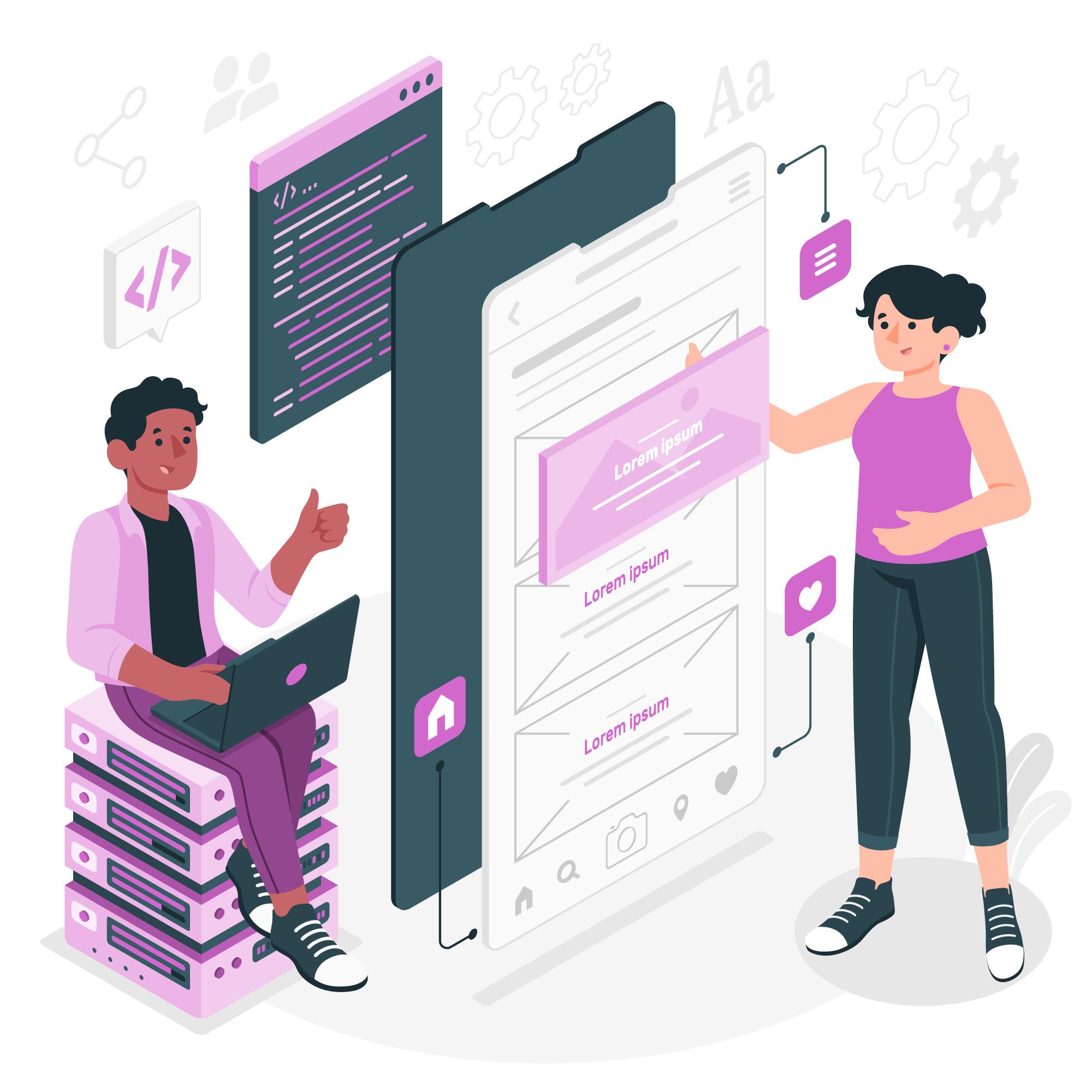Introduction:
In today’s digital age, mobile applications have become an integral part of our lives. From social media and entertainment to productivity and e-commerce, mobile apps have transformed the way we interact with technology. As businesses strive to stay competitive in the ever-evolving market, understanding the basics of mobile app development is crucial. In this comprehensive guide, we will explore the various platforms, programming languages, and tools involved in creating successful mobile applications.
The Importance of Mobile App Development:
The first section will delve into the benefits of mobile apps for businesses and consumers alike. With the ever-increasing number of smartphone users worldwide, having a well-designed and functional mobile app can significantly contribute to business growth and success.
The importance of mobile app development lies in its ability to enhance customer engagement and provide an exceptional user experience. Mobile apps offer a convenient platform for businesses to connect with their customers directly and establish a strong brand presence. By offering personalized content and features tailored to individual preferences, businesses can foster long-lasting relationships with their target audience.
Furthermore, mobile apps provide a competitive advantage by allowing businesses to stay ahead of the curve. In an era where technology is rapidly evolving, having an innovative and user-friendly mobile app sets businesses apart from their competitors. It showcases their commitment to adaptability and modernity while providing customers with efficient solutions at their fingertips.
Mobile apps also play a vital role in boosting sales and revenue generation. With features like in-app purchases or easy payment options integrated into the app, businesses can streamline the buying process for customers. This convenience not only increases conversion rates but also encourages repeat purchases and loyalty.
Moreover, mobile apps offer valuable insights into consumer behavior through analytics tools. Businesses can gather data on user preferences, purchasing patterns, and other relevant metrics to refine their marketing strategies further. This data-driven approach enables targeted marketing campaigns that yield higher returns on investment.
Mobile App Platforms:
This section will focus on the major platforms dominating the mobile app landscape like iOS and Android. When it comes to mobile app development, there are several platforms to choose from. Each platform has its own unique features and benefits, catering to different user preferences and requirements. Here’s a brief overview of the most popular mobile app platforms:
1. iOS:
Developed by Apple, iOS is the operating system that powers iPhones, iPads, and iPod Touch devices. Known for its sleek design and intuitive user interface, iOS offers a secure and seamless user experience. It also provides access to the Apple App Store, which is known for its strict quality control measures.
2. Android:
Developed by Google, Android is an open-source operating system used by a wide range of smartphone manufacturers. It offers great flexibility in terms of customization and allows developers to create apps for various devices with different screen sizes and hardware specifications. Android apps are primarily distributed through the Google Play Store.
3. Windows:
Developed by Microsoft, Windows Mobile is another popular mobile app platform that caters primarily to business users. It integrates well with other Microsoft products such as Office Suite and offers features like enterprise-level security and compatibility with Windows-based systems.
4. Cross-platform:
In addition to platform-specific options, there are cross-platform frameworks like React Native or Flutter that allow developers to write code once and deploy it on multiple platforms simultaneously. This approach saves time and resources while still delivering a native-like experience on each platform.
Choosing the right mobile app platform depends on factors such as target audience, budget constraints, desired features/functionality, and development resources available. Understanding the strengths and limitations of each platform can help businesses make informed decisions when developing their mobile applications.
Programming Languages for Mobile Apps:
Here we will explore popular programming languages used in mobile app development. We will provide an overview of Java and Kotlin for Android development as well as Swift for iOS development. When it comes to developing mobile apps, choosing the right programming language is crucial. Different platforms require different languages to ensure optimal performance and functionality. For iOS development, Swift has emerged as the go-to language. It is easy to learn and offers a seamless integration with Apple’s frameworks and APIs.

On the other hand, for Android development, Java has been traditionally used. However, Kotlin has gained significant popularity in recent years due to its concise syntax and enhanced safety features. Many developers now prefer Kotlin for its ability to reduce boilerplate code and improve overall productivity.
Both Swift and Kotlin offer robust support for mobile app development with their respective platforms. They provide access to a wide range of libraries and tools that simplify the app creation process.
Ultimately, the choice of programming language depends on various factors such as project requirements, developer expertise, and target audience. By understanding the strengths of each language for mobile app development – Swift for iOS and Kotlin (or Java) for Android – developers can make informed decisions that lead to successful app creations.
Tools for Mobile App Development:
This section will highlight essential tools that streamline the app development process. To create successful and user-friendly mobile applications, developers rely on a variety of tools that streamline the development process and enhance productivity. These tools encompass a wide range of functionalities, from designing interfaces to testing and debugging applications.
One crucial tool for mobile app development is an Integrated Development Environment (IDE), such as Android Studio or Xcode. These IDEs provide a comprehensive platform for developers to write, debug, and test their code efficiently. They offer features like code completion, debugging tools, and emulators to simulate app behavior on various devices.
Another essential tool is a software development kit (SDK), which includes libraries, frameworks, and documentation necessary for building apps on specific platforms like iOS or Android. SDKs provide developers with pre-built components that can be integrated into their applications, saving time and effort.
For designing visually appealing interfaces, designers often utilize graphic design tools like Adobe XD or Sketch. These tools allow designers to create wireframes and prototypes that showcase the app’s layout, user interface elements, and navigation flow.
To ensure the functionality and performance of mobile apps across different devices and operating systems, developers employ testing frameworks like Appium or XCTest. These frameworks enable automated testing on multiple platforms simultaneously while providing detailed reports on any issues encountered during the testing process.
Lastly, version control systems such as Git are vital for collaboration among team members working on the same project. These systems track changes made to the codebase over time while allowing developers to revert back to previous versions if necessary.
Conclusion:
Mobile app development has become a vital aspect of staying competitive in today’s digital landscape. By understanding the platforms, programming languages, and tools involved, businesses can create innovative and user-friendly mobile applications. Whether choosing iOS or Android development or opting for cross-platform solutions, the possibilities are endless. By harnessing the power of mobile apps, businesses can engage customers effectively and tap into new revenue streams. So let’s dive into the world of mobile app development and unlock its immense potential.
Check Out Our Previous Blogs – https://webhubsolution.com/7-components-digital-marketing/
Find Out More – https://en.wikipedia.org/wiki/Mobile_app


Error: Contact form not found.